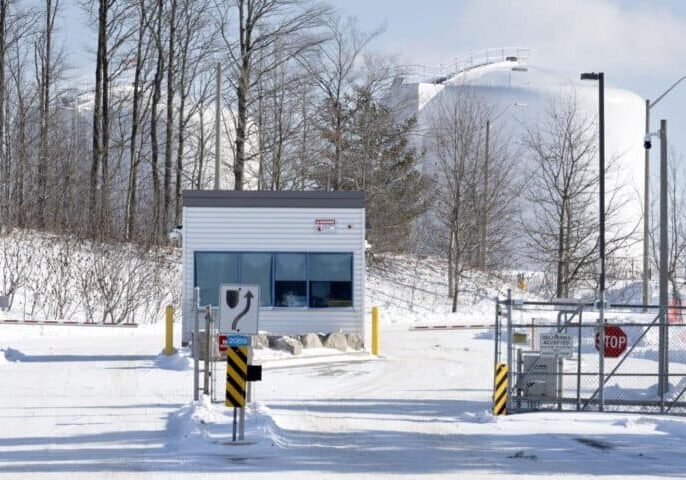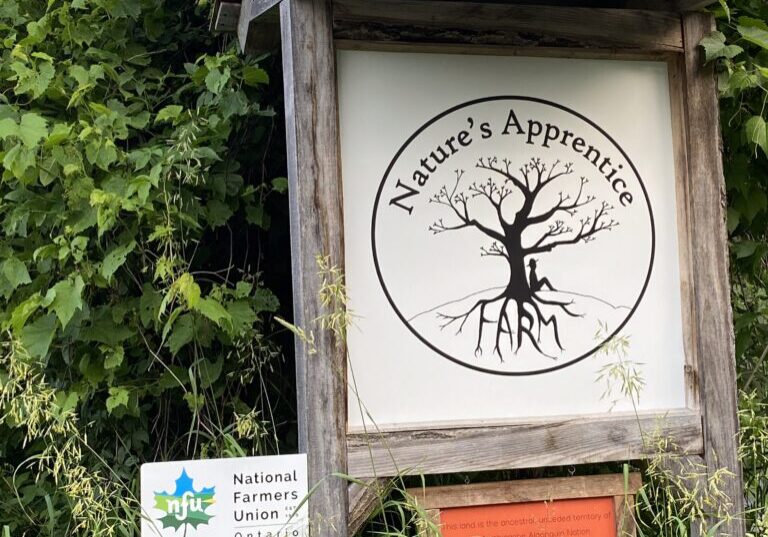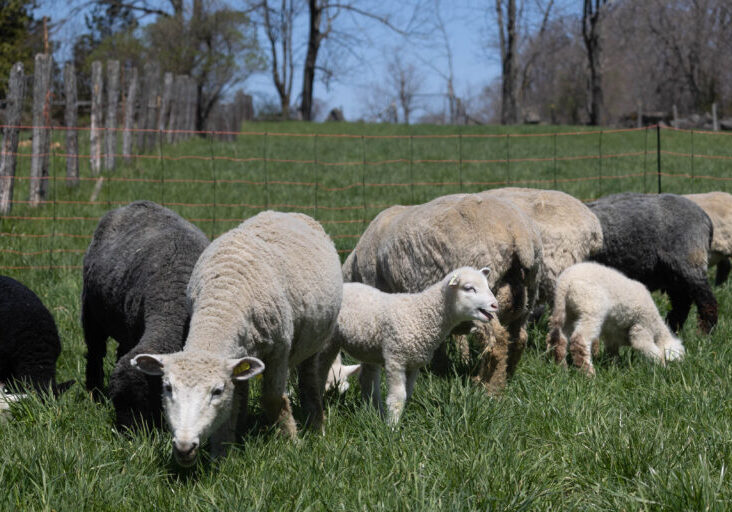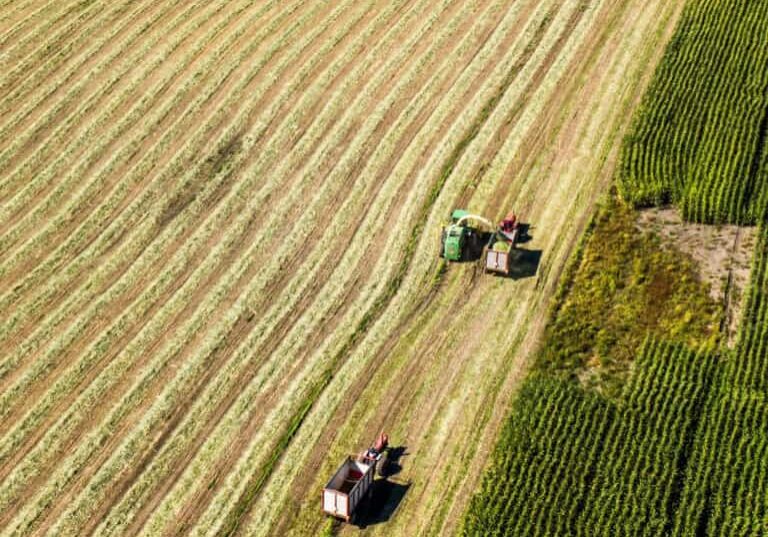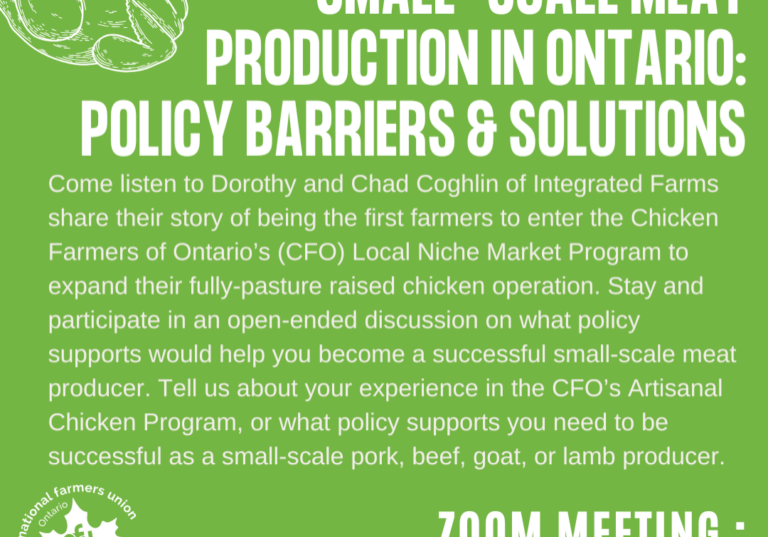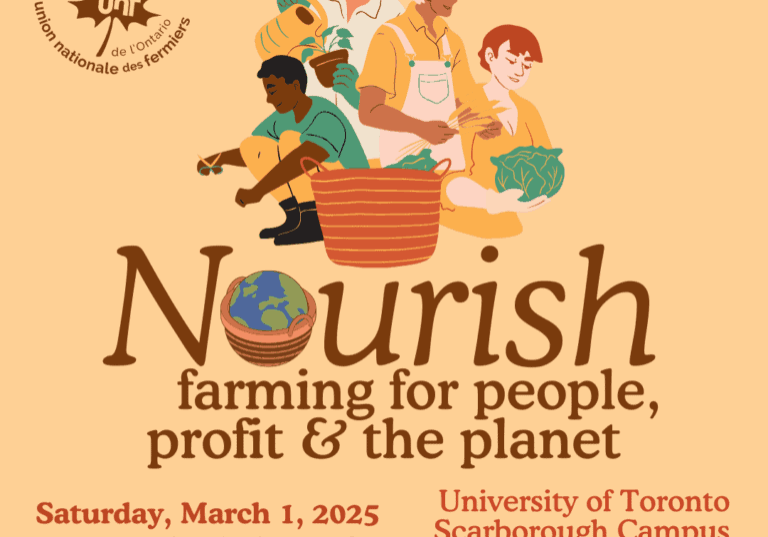Tackling the Farm Crisis and the Climate Crisis: a new report from the National Farmers Union
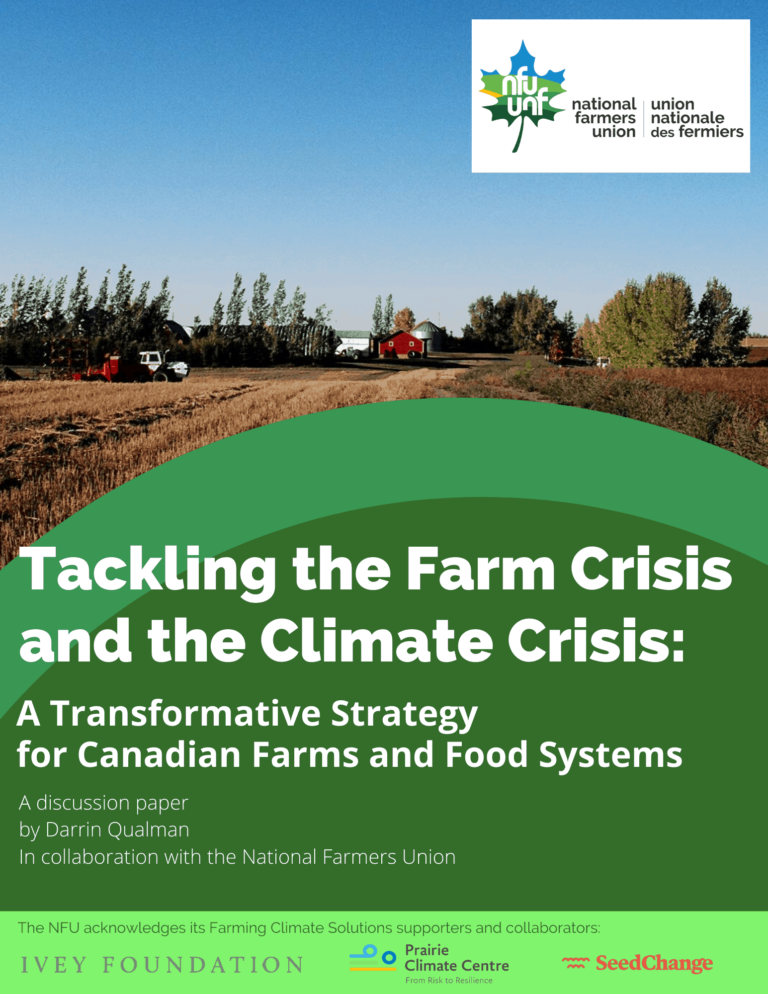
National Farmers Union – Ontario Newsletter
The Rural Voice | January 2020
“The farm crisis and the climate crisis share many of the same causes, and many of the same solutions.”
Canadian farm debt has nearly doubled since 2000, standing at a record $106 billion. An ever-increasing use of synthetic inputs, fuel, chemicals and plastics increases emissions while lowering farmers’ incomes. Between 1985 and 2018, input suppliers captured more than 95 per cent of every farm-earned dollar, leaving farmers only five per cent.
The farm crisis is a threat to Canadian farms, but also an opportunity to re-orient our farms to become more integrated, life-sustaining and community-sustaining. In this historical moment, as the changes in our climate system force us to reduce energy use and emissions, farm families have a chance to break free from approaches that extract farm wealth, decimate farm numbers, weaken communities, and force children to leave farming.
We need to incentivize low-input, low-emission agricultural approaches. Ten thousand years of history makes one thing crystal clear: farming does not create Greenhouse Gas (GHG) emissions, petro-industrial inputs create GHG emissions. The core of Canada’s agricultural policy focuses on maximizing production and exports. But, maximizing outputs also means maximizing inputs.
The good news is that knowing that high-output, high-input agriculture is the primary cause of the farm crisis and the primary cause of increasing GHG emissions from our farms and food-production systems is also knowing that by lowering farm input use we are increasing the net farm income while reducing GHG emissions.
Both the climate crisis and the farm crisis are so complex that no single report can provide all the answers. This report, however, does have many answers—some of which could be implemented right away. Others provide a starting point to opening up the climate conversation in the agricultural sector. Options that will work for different geographic locations, soil types, or types of farms will be explored, but there is no one-size-fits- all solution. The NFU’s proposal is that we must increase soil carbon levels and embark on emission-reduction strategies simultaneously.
If you want to read the full report, please visit www.nfu.ca/wp-content/uploads/2019/12/Tackling-the-Farm-Crisis-and-the-Climate-Crisis-NFU- 2019.pdf
Click here to view the PDF version.
A subscription to The Rural Voice is one of the benefits of being an NFU-O member
